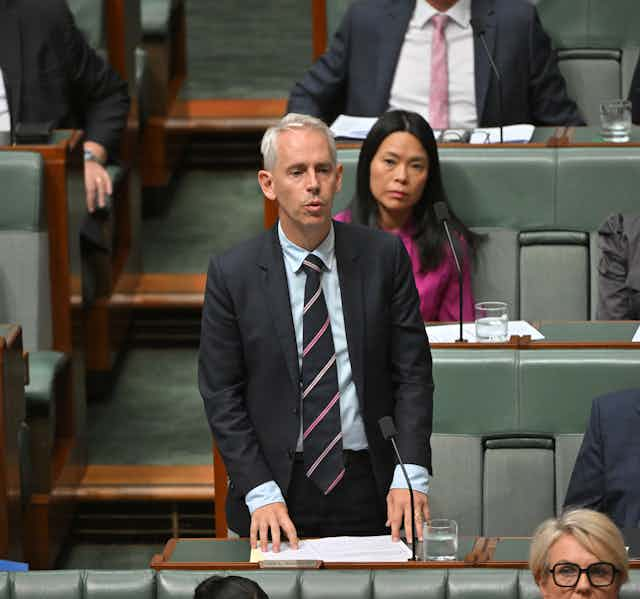The federal government has so far not applied to have any of those released from immigration detention after the November High Court judgement re-detained, according to figures released on Monday.
The government raced legislation through parliament in December to enable it to apply to a court for preventative detention orders.
Under sustained opposition questioning in the House of Representatives, Immigration Minister Andrew Giles said the government’s regime was modelled on the Coalition’s high risk offenders legislation, which had seen a lengthy time for any application to be made.
Figures released during Senate estimates hearings showed 24 of the 149 detainees released have been arrested and charged with offences - six for breaches of visa conditions and 18 for offences under state and territory law.
At the end of January, 113 of the ex-detainees had been required to wear ankle bracelets.
Details of the ex-detainees’ offences committed before their detention were released on Monday. They showed seven had been convicted of murder or attempted murder and 37 of sexually-based offences, including child sex offences.
Some 72 had convictions for assault and violent offending, kidnapping, and armed robbery; another 16 had convictions for domestic violence and stalking.
Thirteen had convictions for serious drug offences, less than five for serious people smuggling crimes and less than five for offences described as a “low level or no criminality”.
Numbers include overseas offending in some cases.
The ex-detainees cannot be deported because no other country will take them or they are stateless.
The opposition unsuccessfully pressed Giles on whether any of the 36 people who were not wearing ankle bracelets had committed offences since leaving detention. In Senate estimates the government took the question on notice.
Giles declined to go into “operational matters”.
He said “the management of everyone in that cohort has been subject to the expert advice of the men and women of the community protection board”.
Giles repeatedly stressed the people had had to be released under the High Court decision, which would have been the case under any government. The court found they could not be indefinitely detained.
“Since then, we have been working around the clock to ensure the community is kept safe.
"We have done so by putting in place layers of protection. One of which is, of course, the regime that was the subject of legislation […] at the end of last year” providing for preventative detention.
Saying this was modelled on the Coalition’s high-risk offenders law, Giles pointed out “it took more than three years for the first continuing detention order application after that regime was enacted.
"And 10 months was the shortest period of time for an application to be made to the court under the members opposite.”
Opposition home affairs spokesman James Paterson said Senate processes had forced the government to “cough up” a whole lot of information. “Hopefully the government actually gets off their proverbial and makes an application to the court.”

